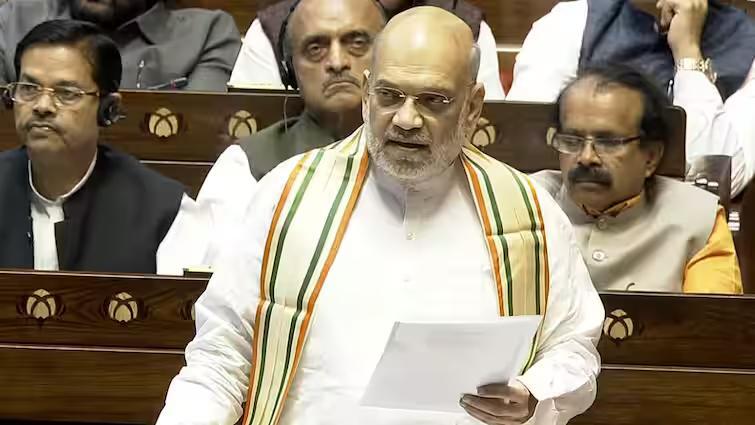
Title: 70% deaths due to terrorism reduced in J&K: BJP’s Amit Shah
The Union Home Minister, Amit Shah, made a significant statement in the Rajya Sabha recently, stating that there has been a 70% reduction in deaths due to terrorism in Jammu and Kashmir (J&K) during the tenure of the Prime Minister Narendra Modi-led government. This remark came during a discussion on the working of the Home Ministry in the Upper House of Parliament.
Shah’s statement has sparked a mix of reactions from politicians across the aisle, with the opposition parties questioning the accuracy of the claim. However, the Home Minister’s assertion is based on the data available, which suggests that the number of fatalities due to terrorist attacks in J&K has indeed decreased significantly since the abrogation of Article 370 in August 2019.
The abrogation of Article 370, which granted special status to J&K, was a major move by the Modi government to integrate the state with the rest of the country. The decision was met with widespread protests and violence in the valley, but the government maintained that it was necessary to bring peace and development to the region.
One of the key concerns that the government had raised about Article 370 was the involvement of Indian youths with terrorist organizations in J&K. Shah claimed that after the abrogation of Article 370, the involvement of Indian youths with terrorists has “almost disappeared”. This is a significant development, as the involvement of local youths in terrorism has been a major challenge for the security forces in the region.
The data available from the Jammu and Kashmir Police and the Ministry of Home Affairs suggests that the number of terrorist attacks in the region has decreased significantly since 2019. According to the data, there were 413 terrorist attacks in J&K in 2019, which resulted in the deaths of 122 people. In 2020, the number of terrorist attacks decreased to 246, resulting in the deaths of 64 people. In 2021, the number of terrorist attacks further decreased to 143, resulting in the deaths of 34 people.
These numbers indicate a significant reduction in the number of terrorist attacks and fatalities in J&K over the past three years. While there is no single explanation for this decrease, experts attribute it to a combination of factors, including the abrogation of Article 370, the increased security presence in the region, and the effective counter-terrorism operations launched by the security forces.
The abrogation of Article 370 has also led to a significant decline in the number of foreign terrorist fighters entering J&K. According to the Ministry of Home Affairs, there were 248 foreign terrorist fighters who entered J&K between 2014 and 2019. In 2020, the number of foreign terrorist fighters who entered J&K was zero, and in 2021, it was just one.
The decline in terrorist attacks and fatalities in J&K is a significant achievement for the Modi government, and Shah’s statement reflects the government’s commitment to maintaining peace and stability in the region. However, the government must continue to work towards addressing the underlying issues that drive terrorism in the region, including poverty, unemployment, and lack of opportunities.
The opposition parties have questioned the accuracy of Shah’s statement, claiming that the data available does not support his claim of a 70% reduction in deaths due to terrorism in J&K. However, the data available from credible sources suggests that the number of terrorist attacks and fatalities in J&K has indeed decreased significantly since 2019.
In conclusion, Amit Shah’s statement that there has been a 70% reduction in deaths due to terrorism in J&K during the tenure of the Prime Minister Narendra Modi-led government is based on the available data, which suggests that the number of terrorist attacks and fatalities in the region has indeed decreased significantly since 2019. The abrogation of Article 370 and the effective counter-terrorism operations launched by the security forces have contributed to this decrease, and the government must continue to work towards addressing the underlying issues that drive terrorism in the region.






